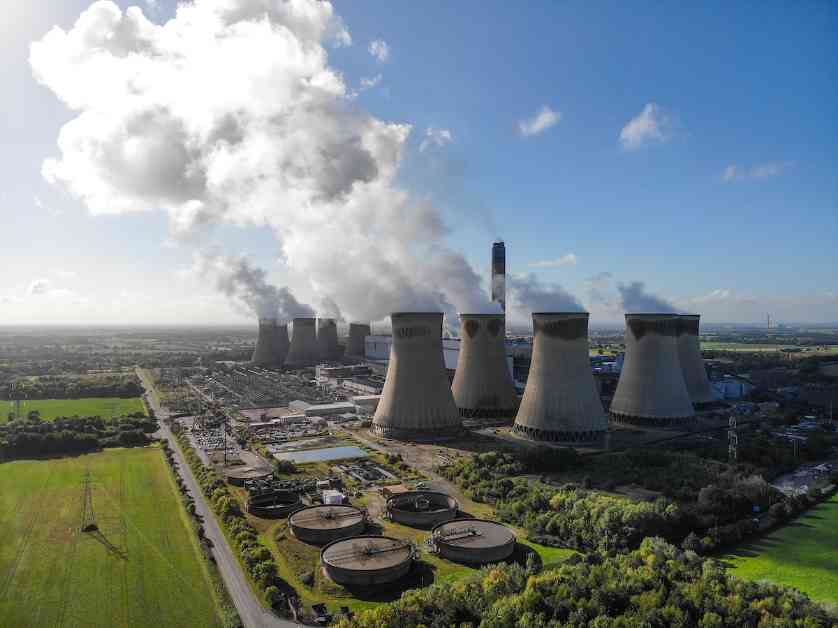The Drax power station in North Yorkshire, UK, has long been a hot topic due to its controversial transition from burning coal to biomass. Recently, the UK government announced a significant reduction in subsidies for the plant, citing concerns about sustainability and excessive profits. This decision has sparked a debate among environmentalists, policymakers, and energy experts, raising questions about the future of biomass energy in the country.
Unpacking the Subsidy Cut
The move to slash subsidies for the Drax power station by 50% has sent shockwaves through the energy industry and environmental advocacy groups alike. The decision, which aims to address sustainability issues and rein in the plant’s profitability, marks a significant shift in the UK’s energy policy. Energy Minister Michael Shanks emphasized the need for a more balanced approach to biomass energy, highlighting concerns about the environmental impact of sourcing wood pellets from overseas forests.
The new agreement with Drax includes strict guidelines on the use of sustainable wood sources and penalties for noncompliance. By 2031, subsidies will be reduced by half, saving customers millions of dollars annually. The government’s goal is to ensure that the plant operates only when necessary, minimizing its environmental footprint and maximizing cost-effectiveness for consumers. This strategic move signals a broader shift towards cleaner, more sustainable energy practices in the UK.
Implications for the Energy Sector
As the largest renewable power generator in Britain, Drax plays a crucial role in the country’s energy landscape. With its transition away from coal-fired power plants, the company has positioned itself as a leader in renewable energy production. The recent subsidy cut, while challenging for Drax and its stakeholders, reflects a growing awareness of the need for more sustainable energy solutions.
Chief Executive Will Gardiner’s comments on the revised agreement underscore the importance of balancing energy generation with environmental considerations. By implementing a “clawback mechanism” to prevent excessive profits, Drax aims to align its operations with the UK’s long-term energy goals. This proactive approach to sustainability demonstrates a commitment to environmental stewardship and responsible energy production.
In response to the subsidy reduction, environmental activists have raised concerns about the impact of biomass burning on the environment. Greenpeace UK’s Doug Parr emphasized the need for stricter regulations and cleaner energy alternatives to reduce carbon emissions and protect natural resources. While the government’s new criteria for Drax’s operations represent a step in the right direction, activists are calling for greater transparency and accountability in the energy sector.
As the debate over biomass energy continues to unfold, the UK faces a critical juncture in its transition to a more sustainable energy future. By balancing economic interests with environmental concerns, policymakers, industry leaders, and activists can work together to create a cleaner, greener energy landscape for future generations. The subsidy cut for the Drax power station is just one step in this ongoing journey towards a more sustainable and equitable energy system that benefits both people and the planet.














